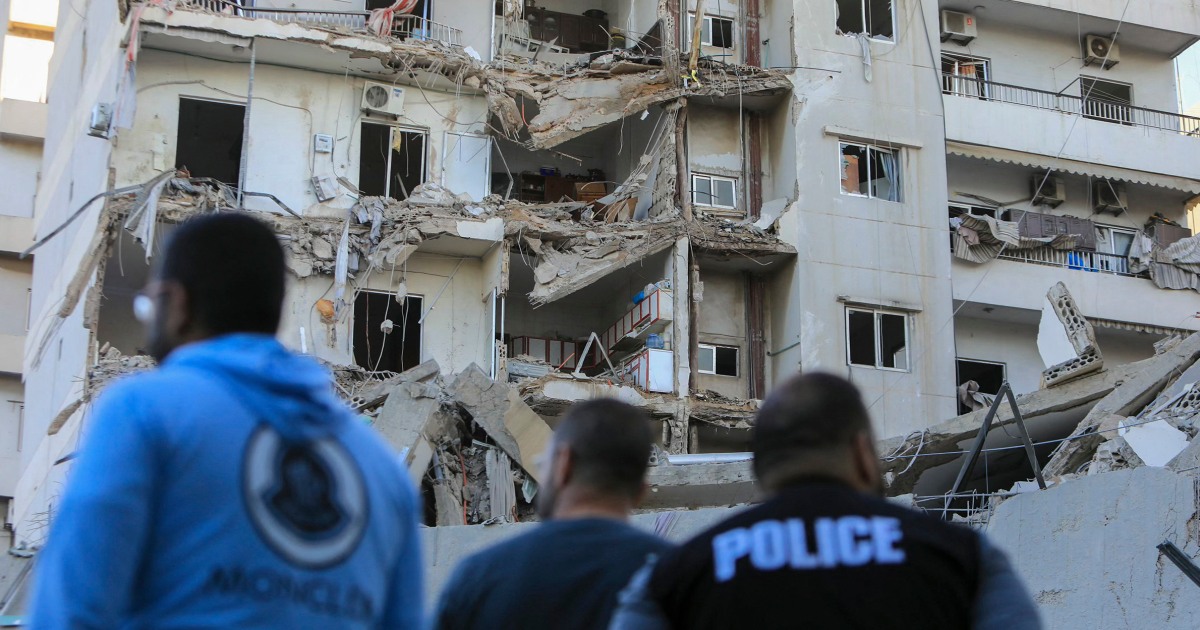Al-Qard Al-Hassan, or AQAH, has been under U.S. sanctions since 2007, with the U.S. Department of the Treasury describing the bank as being used by Hezbollah “as a cover to manage the terrorist group’s financial activities” and to “gain access to the international financial system.”
In the years since, Treasury officials have continued to accuse Hezbollah of using the bank to “abuse the Lebanese financial sector and drain Lebanon’s financial resources at an already dire time” in a country grappling with a series of protracted economic and political crises.
Al-Qard Al-Hassan has more than 30 branches across Lebanon, according to local media, with many based in the Shiite-majority southern suburbs of Beirut.
Israel’s strikes on the bank’s branches marks an expansion of its war against Hezbollah beyond what the IDF has described as the targeting of Hezbollah military sites.
During his briefing, Hagari said that “in the coming days,” Israeli officials would “reveal how Iran funds Hezbollah’s terror activities by using civilian institutions, associations and NGOs that act as fronts for terrorism.”
Hagari said that dozens of projectiles had been fired into northern Israel in the 24 hours before the Israeli military began issuing evacuation orders ahead of its strikes Sunday night.
In a separate statement, the IDF said Monday that Israeli soldiers also continued to launch ground raids into southern Lebanon and had dismantled “large quantities of Hezbollah’s weapons,” while also killing Hezbollah members, including “tactical-level commanders.”
At least 2,464 people, including 127 children, have been killed in Lebanon since hostilities between Israel and Hezbollah began to escalate last year following Hamas’ Oct. 7 terror attack, according to the Lebanese health ministry, while an estimated 1.2 million people have been displaced from their homes.

Leave a Reply